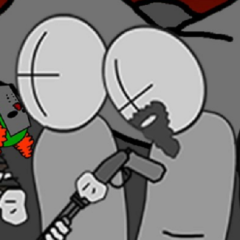
Typing Games
Typing games are designed to improve digital literacy and make the process of learning to type more structured and engaging. These games focus on training speed, precision, and hand coordination, allowing players to build useful skills while completing different challenges. Whether used for personal development, classroom learning, or casual practice, typing games serve as a tool that blends productivity with entertainment in a balanced way.
Varieties Of Typing Games
There are many categories within typing games, each addressing different skill levels and goals. Some are focused on beginners, guiding players through simple word and letter recognition tasks. Others are aimed at advanced users, providing long sentences or rapid prompts that require quick reaction. Competitive formats also exist, where players test their skills against others in real time. Each variation ensures that players can choose the type of experience that matches their needs.
Common Elements
Most typing games share structural elements that help players measure progress and stay consistent. These often include:
- Accuracy scoring systems to show how precise the typing is
- Word-per-minute counters that track typing speed
- Multiple levels of increasing difficulty
- Visual feedback to highlight mistakes immediately
- Goal-based challenges that motivate continuous practice
By combining these features, the games create a clear framework for improvement while still being accessible to players of all skill levels.
Educational And Practical Role
Typing games are widely used in education to help students adapt to digital tools more efficiently. Schools and training programs often incorporate them to teach proper typing techniques and keyboard familiarity. Beyond education, many people use them as a personal tool to improve work efficiency, communication, and general computer use. The structured feedback provided by these games makes them effective for both formal learning and individual self-improvement.
The benefits of typing games extend into daily life, where typing is a common activity in professional and personal contexts. Consistent practice leads to better speed and accuracy, reducing errors in writing and communication tasks. Over time, players gain confidence and efficiency, making digital tasks smoother and less time-consuming. This ensures that the skills built within the games have a direct and lasting impact outside of the gaming environment.


